Korg D1
$394.99
The Korg D1 piano offers a premium stage piano experience featuring 88 full-sized weighted keys for a realistic and expressive playing experience.
Compare
Description
Korg D1 is a portable digital piano introduced by the Japanese company Korg in 2018. It is designed for musicians who are looking for high-quality sound, a compact and light-weight form factor, and a reasonable price. With its advanced features and easy-to-use interface, the Korg D1 has become a favorite among many musicians.
The Korg D1 features a natural weighted hammer action keyboard with 88 keys, providing a realistic playing experience. The hammer action simulates the weight and feel of a traditional acoustic piano, making it an excellent choice for pianists looking for an authentic experience. The keyboard has velocity sensitivity, allowing for a variety of dynamics to be expressed in performances, and offers 5 different touch sensitivity settings.
One of the most impressive features of the Korg D1 is its sound engine which offers 30 different instruments, including pianos, electric pianos, organs, and strings. The sound quality is exceptional, and the instruments have been sampled from some of the best instruments in the world. The piano sounds are sampled from a Steinway concert grand, with the electric pianos based on the Rhodes and Wurlitzer sounds. Additionally, the Korg D1 includes 30 demo songs and 50 preset sounds, making it easy to get started playing right away.
The Korg D1 also offers a variety of connectivity options, including MIDI in/out, USB MIDI, and audio output. This means that the Korg D1 can be used with a wide range of software and hardware, making it a versatile instrument for live performances and studio recordings.
The Korg D1 is designed to be compact and light-weight, making it easy to transport. It weighs only 16 kg and has a slim design, making it ideal for musicians who need to travel from one gig to another. The aesthetic of the instrument is also sleek and modern, with a simple yet stylish design that looks great on stage.
Overall, the Korg D1 is an excellent choice for musicians who need a portable digital piano with high-quality sounds and a realistic playing experience. It’s perfect for students, gigging musicians, and anyone who wants a portable practice piano at home. With its impressive sound quality and features, the Korg D1 is a fantastic investment for any pianist.
Korg D1 properties
| Product name |
D1 |
| Brand |
Korg |
| Type |
Keyboard Instruments |
| Keyboard Instrument |
Stage and Digital Piano |
| Keys |
Yes |
| Number of Keys |
88 pcs |
| Key Functions |
Touch Sensitive |
| Pre-Programmed Songs |
Yes |
| Pre-Programmed Sounds |
Yes |
| Pre-Programmed Effects |
Yes |
| Connections |
MIDI, MIDI In |
| Colour |
Black |
| Power Supply |
Electrical Cable to Wall Socket |
Frequently Asked Questions:
How does the Korg D1's Super Natural Piano technology replicate the natural behavior of a grand piano's strings, damper pedals, and soundboard?
The Korg D1 digital piano utilizes Korg's proprietary Super Natural Piano technology to accurately replicate the natural behavior of a grand piano's strings, damper pedals, and soundboard. This technology analyzes the behavior of the entire piano, from the string vibrations to the acoustic resonance of the wooden body, and recreates it with incredible detail and accuracy. The result is a truly authentic and immersive playing experience that captures the nuances and subtleties of a grand piano's sound and feel. Additionally, Super Natural Piano allows for highly responsive dynamics and expression, as well as incredibly lifelike pedal response. Overall, this technology sets the Korg D1 apart from other digital pianos on the market and makes it an excellent choice for serious musicians and aspiring pianists alike.
What unique features does the Korg D1 digital piano offer to enhance stage performance, as compared to traditional acoustic pianos?
The Korg D1 digital piano boasts several unique features that set it apart from traditional acoustic pianos and make it an ideal choice for stage performances. Firstly, its compact size and lightweight design make it easy to transport and set up, eliminating the need for a large grand piano and saving valuable space on stage. Secondly, the D1's digital sound engine provides a wide variety of instrument voices and effects, allowing performers to switch between different sounds seamlessly during their sets. This versatility also enables them to layer multiple sounds together, creating rich and complex textures that would be difficult or impossible to achieve on an acoustic piano alone. Additionally, the D1's built-in metronome, recorder, and USB connectivity make it a powerful tool for practicing and collaborating with other musicians. Overall, the Korg D1 digital piano offers a range of innovative features that enhance stage performance, making it a popular choice among professional pianists and musicians around the world.
How does the Korg D1's Super Natural Piano technology differ from traditional piano sampling methods?
The Korg D1 digital piano employs advanced technology known as Super Natural Piano, which goes beyond the limitations of conventional piano sampling methods. Unlike traditional sampling techniques that simply record a few notes played on a real acoustic grand piano, Super Natural Piano captures the natural resonances and other nuanced characteristics unique to each individual note on the keyboard. This results in a richer, more vibrant and truly authentic piano sound that replicates the behavior of an acoustic piano, such as sympathetic resonance, letting you hear other strings ring as the keys are played, similar to what happens when playing an acoustic grand piano. With Super Natural Piano technology, Korg has taken digital piano performance to a whole new level, providing a finely-crafted and immersive pianistic experience that is truly second to none.
How does the Korg D1's Natural Weighted Keyboard technology simulate the touch of an acoustic piano for a more realistic playing experience?
The Korg D1 digital piano is equipped with Natural Weighted Keyboard technology, which simulates the touch and feel of an acoustic piano. This means that the keys on the keyboard are weighted in a way that replicates the resistance and response you would find in a traditional piano. As a result, players can enjoy a more realistic playing experience that helps to develop proper technique and improve their overall performance skills. The Natural Weighted Keyboard technology in the Korg D1 adds an extra level of realism and authenticity that sets it apart from other digital pianos on the market.
What is the purpose of the "Dynamic Shift" function on the Korg D1 digital piano, and how does it affect the overall sound quality when compared to other digital pianos in its class?
The Dynamic Shift function on the Korg D1 digital piano is a feature that allows users to adjust the dynamic range compression of the instrument. In simple terms, this means that you can control the way the volume levels are compressed or expanded. When enabled, the Dynamic Shift function adjusts the sensitivity of the keyboard's velocity curve, allowing for more nuanced and expressive playing. This is particularly useful for pianists who want a more authentic feel when playing softly, as it helps to preserve the subtle dynamics of their performance. In terms of sound quality, the Dynamic Shift function can have a positive impact on the overall tone of the instrument. By adjusting the dynamic range compression, you can achieve a more balanced and natural sound that is less prone to over-compression or distortion. Compared to other digital pianos in its class, the Korg D1's Dynamic Shift function stands out for its flexibility and precision. While many digital pianos offer some form of dynamic control, the Korg D1's implementation allows for a high degree of customization, making it easier to tailor the sound to your specific needs. One potential drawback of the Dynamic Shift function is that it can be somewhat finicky to adjust. The feature requires a good understanding of how dynamic range compression works and how it affects the overall sound quality. However, once you've got the hang of it, the results can be well worth the effort. In comparison to other digital pianos in its class, the Korg D1's Dynamic Shift function is arguably one of its most distinctive features. While some instruments may offer similar controls, they are often less nuanced and less customizable than the Korg D1's implementation. Overall, the Dynamic Shift function is a key part of what makes the Korg D1 such a compelling option for pianists who value precision and control in their digital piano.
What is the difference between the built-in sound engines of the Korg D1, specifically the "Piano" and "E.Piano" modes?
**Piano Mode:**
In the Piano mode, the D1 emulates an upright or grand piano sound. This mode uses Korg's proprietary "Enhanced Algorithm" (EA) technology, which is designed to produce a rich and detailed piano tone. The EA algorithm takes into account various aspects such as attack, decay, sustain, and release (ADSR) of each note, resulting in a more realistic piano sound. In Piano mode, the D1's sound engine produces a warm and balanced tone with good dynamics, which means it can produce both soft and loud notes convincingly. This mode also features Korg's "Damper Resonance" technology, which simulates the sympathetic vibrations of a real piano's strings when the damper is lifted. E. Piano Mode:**
In contrast, the E. Piano (Electric Piano) mode on the D1 aims to recreate the sound of vintage electric pianos from the 1960s and 1970s. This mode uses Korg's "Multi-Stage Filter" technology, which simulates the complex filtering and resonance characteristics of classic electric piano circuits. In E. Piano mode, the D1 produces a bright, crisp, and slightly aggressive sound with a strong attack. The tone is more focused on the high-end frequencies, giving it a characteristic "sparkle" that's reminiscent of vintage Fender Rhodes or Wurlitzer pianos. Key Differences:**
To summarize, here are some key differences between the Piano and E. Piano modes on the Korg D1:
* Tone quality: Piano mode produces a warm, balanced tone with good dynamics, while E. Piano mode delivers a bright, crisp sound with a strong attack. Character: Piano mode is more suited for playing complex, expressive passages, while E. Piano mode is ideal for creating percussive, rhythmic sounds. Filter resonance: The Multi-Stage Filter technology in E. Piano mode allows for greater control over the tone's high-end frequencies and resonance. Overall, both modes offer unique sonic characteristics that cater to different musical styles and applications.
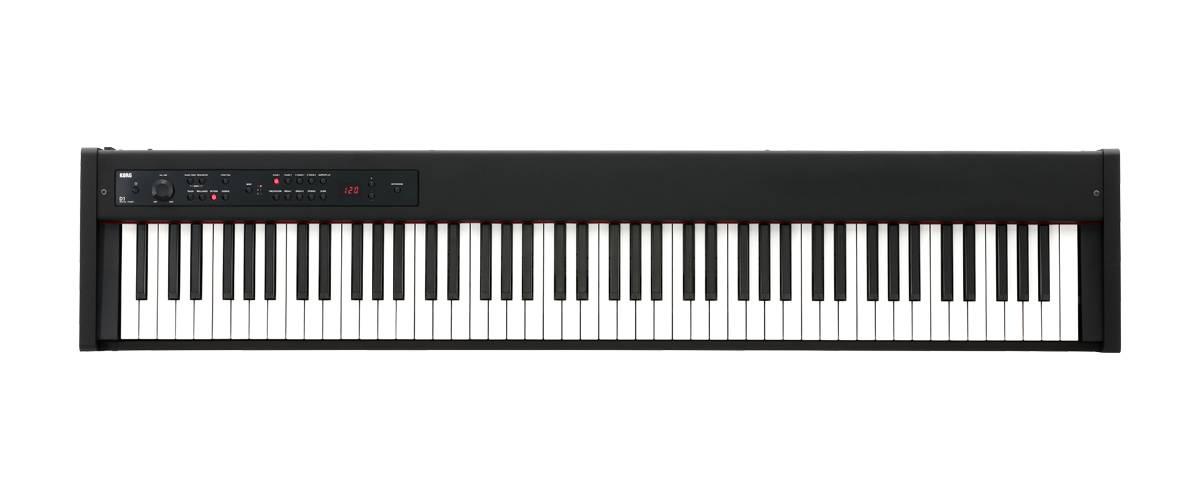
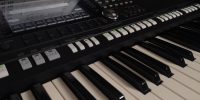
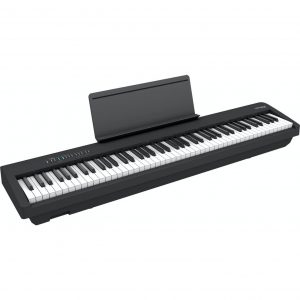
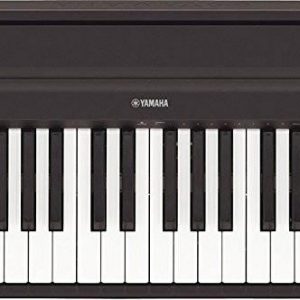
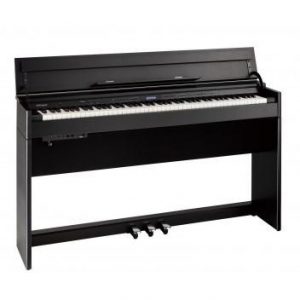
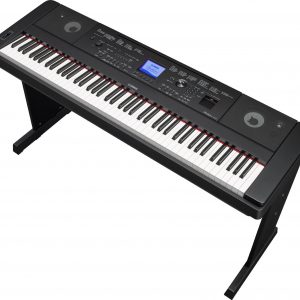
Keira Vincent –
Hey there, fellow music enthusiast! I’m super pumped about our shared passion for creating beautiful melodies with our instruments, especially when it comes to stage and digital pianos. And let me tell you, the brand that we choose can have a significant impact on our experience playing these fantastic musical tools. Let’s dive into why I believe Korg in Stage and Digital Pianos is so darn amazing!
First off, let me share with you my personal story of how I chose Korg D1, a fantastic digital piano that I absolutely adore. You see, I have always been a fan of gruunge music – the raw intensity, the powerful melodies, and the energy that fills the room when those iconic tunes play out. When I was on my journey to find the perfect digital piano for my musical needs, I came across Korg D1, and it felt like fate!
Now, let’s talk about what makes Korg such a stand-out brand in Stage and Digital Pianos. One of the most significant factors that set them apart is their dedication to delivering unparalleled sound quality. Their advanced technology allows for an incredibly realistic piano experience, making you feel like you’re playing on a grand concert stage right from your living room!
Another thing I love about Korg is their innovative design features. They continuously strive to improve the user experience by incorporating intuitive controls and interfaces that make playing our instruments as seamless and enjoyable as possible. This attention to detail truly sets them apart in the industry and makes all the difference when it comes to creating beautiful music.
Now, let me give you some tips and tricks on how to choose the perfect Stage or Digital Piano for your needs:
1. Consider your budget While Korg offers top-of-the-line pianos, there are plenty of other options out there in various price ranges. Make sure to set a budget that works for you and stick to it when making your decision.
2. Think about portability If you plan on taking your piano with you to gigs or performances, consider choosing a model that is lightweight and easy to transport.
3. Assess the sound quality This is super important! Make sure to test out different models to find one that delivers the best sound quality for your specific needs and musical preferences.
4. Check out additional features From built-in speakers to wireless connectivity, there are many awesome features that can enhance your piano playing experience. Make sure to research what each model offers so you can choose the one that fits your needs best.
5. Read reviews Don’t be afraid to read customer reviews and testimonials to get an idea of how others feel about a particular brand or model. This can help you make an informed decision when it comes to choosing the perfect piano for you.
In conclusion, I believe that Korg is an incredible brand that truly understands what it takes to create an amazing Stage and Digital Piano experience. And after trying out their D1 digital piano, I can confidently say that it has become an essential part of my musical journey – especially when it comes to playing those thrilling gruunge tunes! So if you’re in the market for a new piano, make sure to check out Korg and all the fantastic models they have to offer. Happy playing!